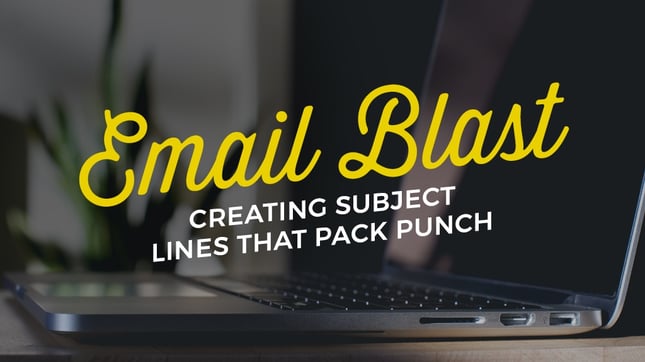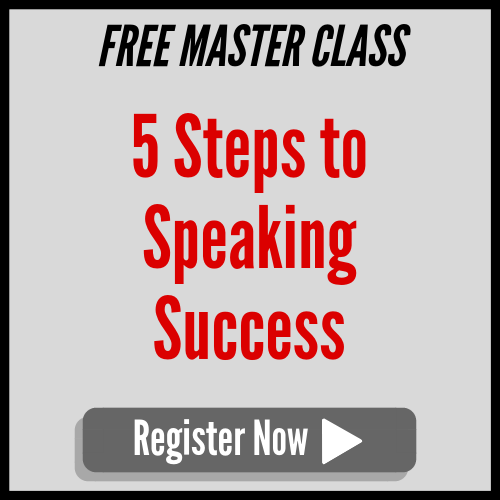
As a marketing speaker and marketing coach, I read roughly 100 marketing, sales and business development books per year. My company is 10 years old, so that makes about 1,000 books so far, give or take a few dozen.
And in almost every one - you'll hear something similar to these bits of advice about sales follow-up:
- "The fortune is in the follow-up"
- "If you don't follow up 5-7 times, you'll lose the sale"
- "Nobody ever EVER buys on the first, second, or third appointment"
- "Most sales are made after the 8th contact, but most salespeople stop after the 3rd contact"
I have good news: This advice is horse doo-doo. (And it's probably making you needlessly tired, frustrated and depressed.)
I also have bad news: This advice is STINKY horse doo-doo that is costing you face time with REAL decision-makers.
Here are 7 reasons you're wasting your time with follow-up:
1. If you're exclusively focused on prospects who are actively SEEKING to solve the problem you're positioned to solve, you'll get their attention on the first or second attempt. If you don't - then you need more targeted and relevant prospects.
2. We're marketing in an era where everyone - including (and especially) your prospects - are lazy, busy, and befuddled. Life moves too fast for follow-up. You're either an immediate priority or you're invisible.
3. Leave non-prospects the hell alone. Continuing to "check in" for no good reason when you're in the invisible column gets real annoying real fast. You may even damage your chances at future sales when you're a current pest.
4. Decision makers make decisions. If you're stuck in follow-up hell, you weren't dealing with a real decision maker in the first place. Following up with someone with no check-writing authority is like trying to teach a Labrador Retriever to drive. It may be fun for a short time, but then someone is going to get bitten.
5. "Short attention span theater" rules the day. If you follow up with today's "hot prospect" next month, chances are excellent that your prospect will say, "Who are you again? We talked about what? When? I'm sorry - I'm just running to a meeting... Bye!"
6. Alpha dogs BUY - Sheep dogs BARK. Chances are that no matter what your product or service, if you're selling to a decision maker, that person has an "alpha dog" personality. They are a Driver (D on the DISC profile) and they make fast decisions with a very low threshold of patience for dickering, bureaucracy or delay. If you want to make a fast sale, the REAL buyer is your best ally to make that happen. Or not. But "following up" to drag out the process will simply turn them off.
7. If you relentlessly focus on the right prospects at the right time for the right reasons, you'll spend a whole lot less time "convincing" and "persuading" fence-sitters and a whole lot more time focusing like a laser beam on the buyers who are ready, willing, and eager to do business with you. No followup needed.
Two quick examples for you:
Dave - The No-Followup Sales Champ
When I was working for a large enterprise software firm, I sat across from one of our top inside salespeople on the days that he and I were both in the office. Those days were a rare treat because I could overhear Dave's sales calls in between my own work and meetings. Talk about free sales training - Dave was masterful.
Dave would call hand-selected leads who were, more often than not, Fortune 1000 Chief Information Officers (CIOs). His opening question after a 7-second introduction of his name and company went something like this:
"I don't know if you're currently evaluating options for enterprise software but if you are, I can offer you some insights and recommendations in less than 15 minutes to help you make a better decision, whether that's with us or not. Is ERP software on your agenda for this year?"
Yes. No. Boom. He opened conversations with about 70% of these prospects. The other 30% politely disqualified themselves and he never called them again. If you're not looking to invest in this category of software BEFORE Dave called you, nothing he said by way of "follow up" would make you dig into the corporate budget and come up with an extra 1-2 million dollars, which was our average sale.
Dave made a note in his CRM database to call them next year. Sometimes he would get the same CIO. And sometimes he would connect with the new CIO because the previous guy botched the ERP installation they bought from someone else. In any case, each annual call was a qualification call - a yes/no filter and NOT a "follow up."
Colleen - The Superachiever Coach with the No-Follow-Up Sales Letter
My pal Colleen Bracken and I started our speaking and coaching businesses within a few months of each other back in 2001. In her early days, Colleen specialized in what she called "Superachiever" coaching - working with CEOs, government leaders, and other top dogs in the corporate and non-profit world.
We worked together on crafting a "no-follow-up" sales letter. Why? Because Colleen had ZERO interest in chasing prospects and she wanted to make this clear in her sales process because she also knew that the alpha dogs she was selling to felt the same way. (See points 1-7 above!)
Here is a portion of the letter we put together:
=====
If you know someone [perhaps someone sitting in your chair?] who is ready to embark on the short, fast, exhilarating ride to the next level of success, STRAP IN and call me at XXX-XXX-XXXX or email colleen@superachiever.net. We’ll set up your no-risk no-obligation 15-minute SuperAchiever coaching call. You’ll be amazed at what we can do in a quarter of an hour.
Finally, I need to answer your unasked question: Why should you work with me? After all, we’ve both been doing just fine without each other so far, right?
1. I’ve handpicked you as someone I specifically want to work with.
2. I’m a REAL professional coach. I’ve received my PCC certification which means that I’ve studied 250 hrs, coached for 1000 hrs and have been designated by the International Coach Federation (the world governing body of the coaching profession). Only 275 other coaches (out of 35,000 coaches worldwide) in the world have met this standard.
3. Clients I’ve worked with have had this to say about our professional relationship:
[Three of Colleen's most powerful 2-3 line testimonials from other Alpha Dogs the recipient would respect.]
Invest 15 minutes with me – no-risk, no obligation -- then decide for yourself. What’s the worst that could happen? You spend 15 minutes getting my best ideas, questions, and tools around what you’re working on right now, and we part ways.
Or... throw this letter straight into the recycling. Only you know if you’re ready for this personal, powerful, unique stuff and the breakthrough successes that come with it.
-- Colleen
[Signature block]
p.s. You're working at 100mph and so am I. For this reason, I won't bother to follow up with you. In my experience, SuperAchievers make fast decisions. So I figure I’ll be hearing from you in the next 3-5 days. Or not at all.
p.p.s. It's your move.
=====
Between this approach in her letters, emails, and personal networking, Colleen built her extremely successful leadership coaching, training and speaking business.
The moral of the story? Screw follow-up. You hate doing it. They hate receiving it.
Instead, do everything in your power to market, sell, and profit from people who are eager to open the door for you when you knock!
p.s. If you'd like some personalized help - and your very own customized marketing and sales toolkit PLUS an easy-to-implement small business marketing game plan with 1-on-1 guidance for 90 days, get all the details here.


 Buyer persona marketing is not about knowing your customers or what they like to buy.
Buyer persona marketing is not about knowing your customers or what they like to buy. 

